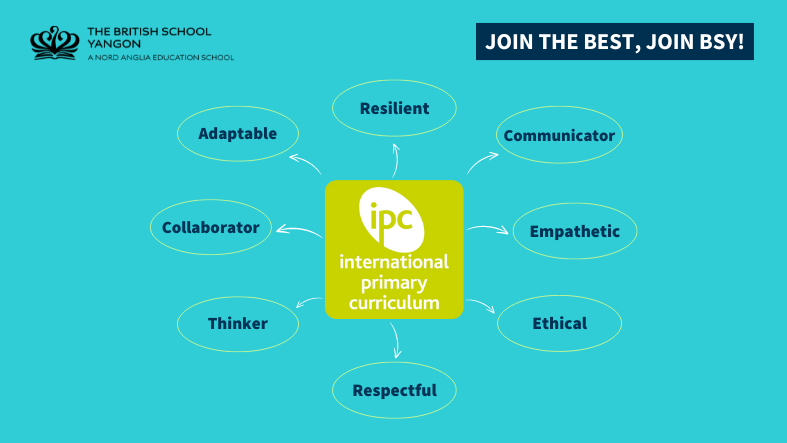We use cookies to improve your online experiences. To learn more and choose your cookies options, please refer to our cookie policy.

The Basics of the International Primary Curriculum (IPC)
The IPC is a thematic, creative curriculum that focuses on teaching a wide range of subjects through engaging, cross-curricular units of work. Each unit is designed around a central theme—such as "Living Things," "Explorers," or "The World Around Us"—which helps students make connections between subjects and understand how different areas of knowledge are interrelated. The IPC’s ultimate goal is to prepare children for the future by not only developing their academic knowledge but also cultivating key personal qualities and international-mindedness.
How the IPC Will Benefit Your Child
1. A Global Perspective
The IPC aims to nurture internationally minded learners. Through its global focus, your child will develop an understanding of different cultures, helping them appreciate diversity and become more adaptable in our interconnected world.
2. Engaging Learning Experiences
Your child’s learning will be centred around real-world, relatable topics that spark curiosity and creativity. This hands-on, project-based approach makes learning fun and memorable. By integrating various subjects into a single theme, children can see the bigger picture and how what they’re learning applies to their everyday lives.
3. Developing Essential Skills
The IPC focuses on three key areas: knowledge, skills, and understanding. While knowledge is what your child learns, skills are the ability to apply that knowledge, and understanding comes from deep reflection on how and why something works. These elements combined help your child become not just a learner, but a thinker, problem-solver, and communicator.
4. Personal Development
The IPC doesn’t just focus on academics; it also helps children develop key personal attributes like resilience, adaptability, and collaboration. These are qualities that are essential for success in the 21st century, ensuring your child is well-rounded both academically and personally.
The Subjects Included in the IPC
The IPC covers a broad range of subjects, all connected through the central themes of each unit. Subjects include:
Science
Geography
History
Art
Design and Technology
Music
Health and Wellbeing
Physical Education
Information and Communication Technology (ICT)
By integrating these subjects into one engaging, thematic framework, the IPC encourages children to draw connections between different areas of knowledge. Additionally, core subjects like English and Mathematics are taught using the English National Curriculum which complements the IPC’s thematic approach.
Your Involvement as a Parent
As a parent, your role in the IPC journey is important. The IPC encourages parental involvement in your child’s learning through activities that extend beyond the classroom. Many units include "exit points," where students share what they’ve learned with their parents—this could be through presentations, exhibitions, or performances.
Moreover, regular updates and communication from the school will keep you informed about the themes your child is exploring, allowing you to support their learning at home. You can find these in the letter sent home before each unit as well as in the weekly newsletter. Whether it’s discussing what they’ve learned, helping with research, or attending IPC events, your involvement can greatly enrich your child’s learning experience.
Final Thoughts
The International Primary Curriculum is more than just a framework for teaching—it’s a holistic approach to developing well-rounded, globally aware learners. By focusing on creativity, international-mindedness, and real-world learning, the IPC offers a unique, engaging, and valuable educational experience for your child. We’re excited for this journey and hope you will be too!
At British School Yangon, we believe that by using the IPC, we are preparing your children for a bright future, equipping them with the knowledge, skills, and understanding they need to thrive both in school and beyond.